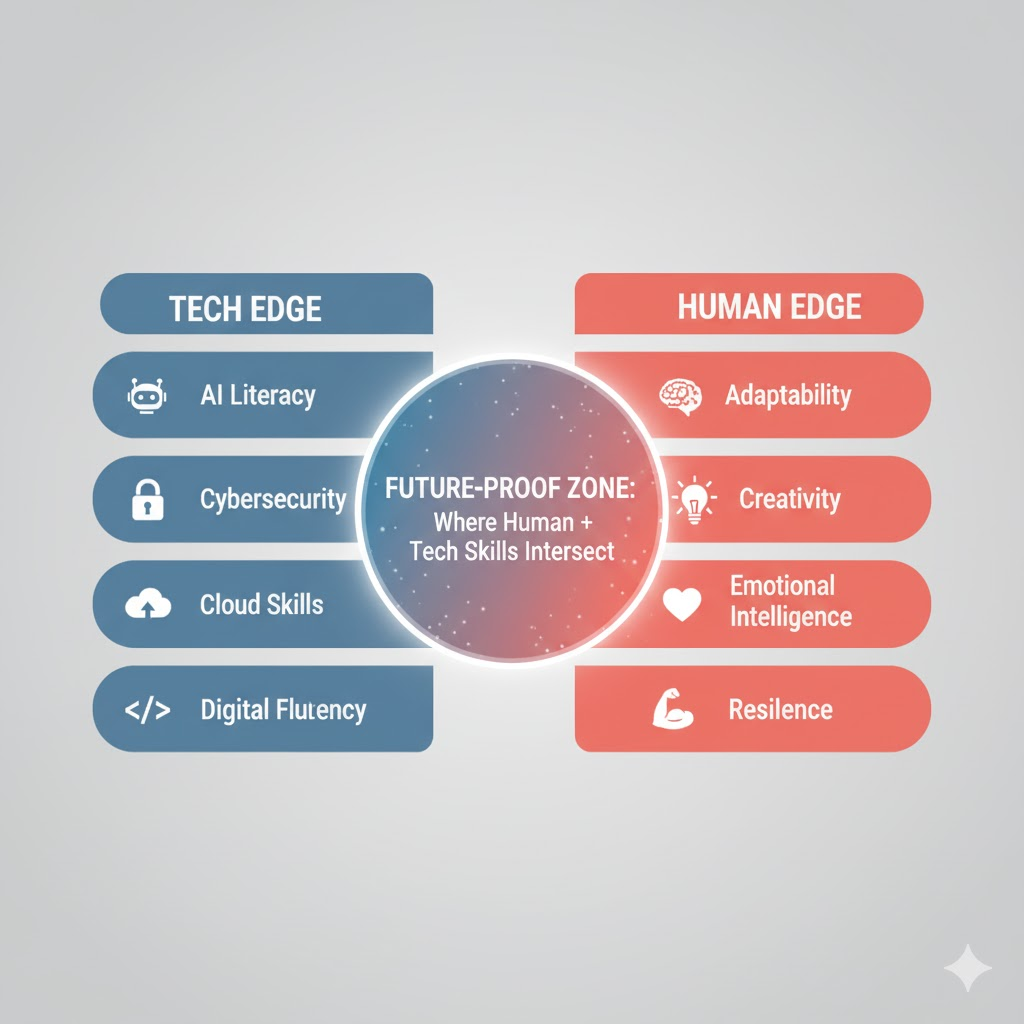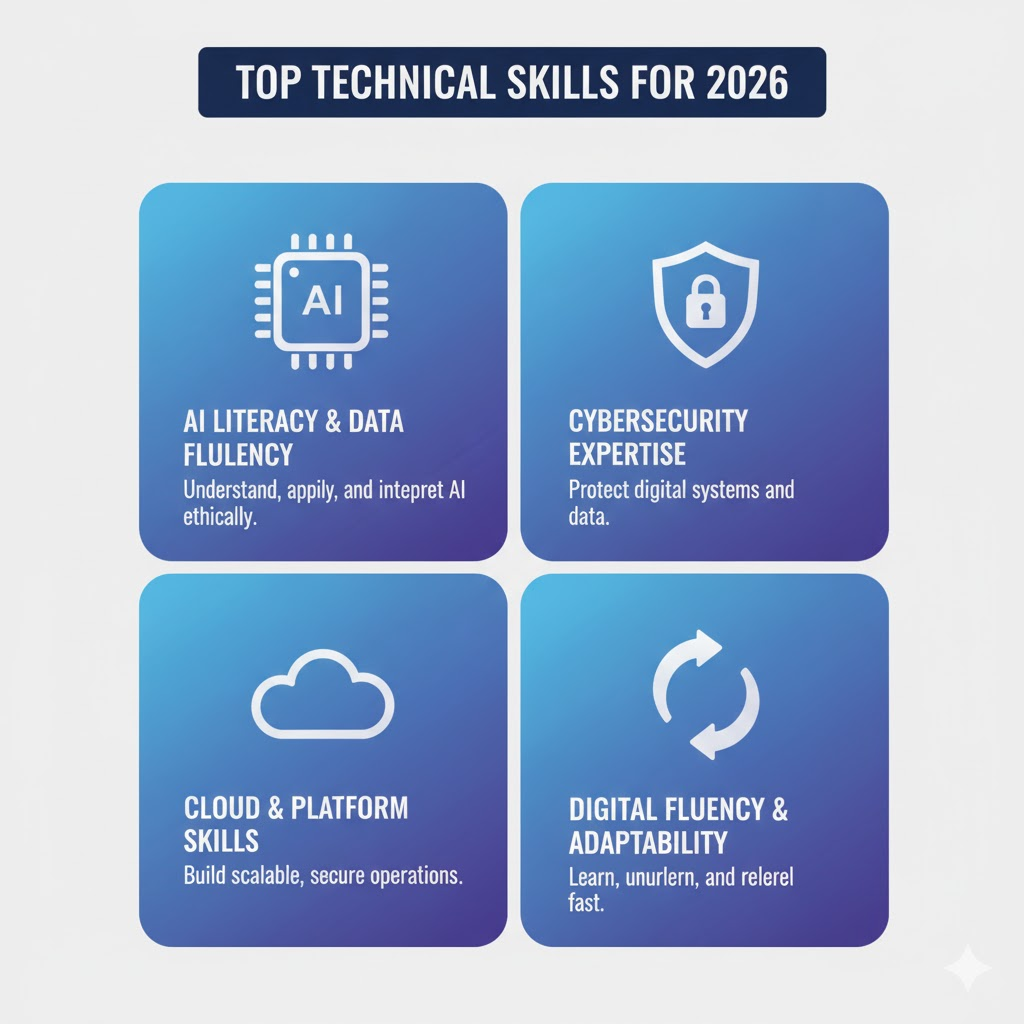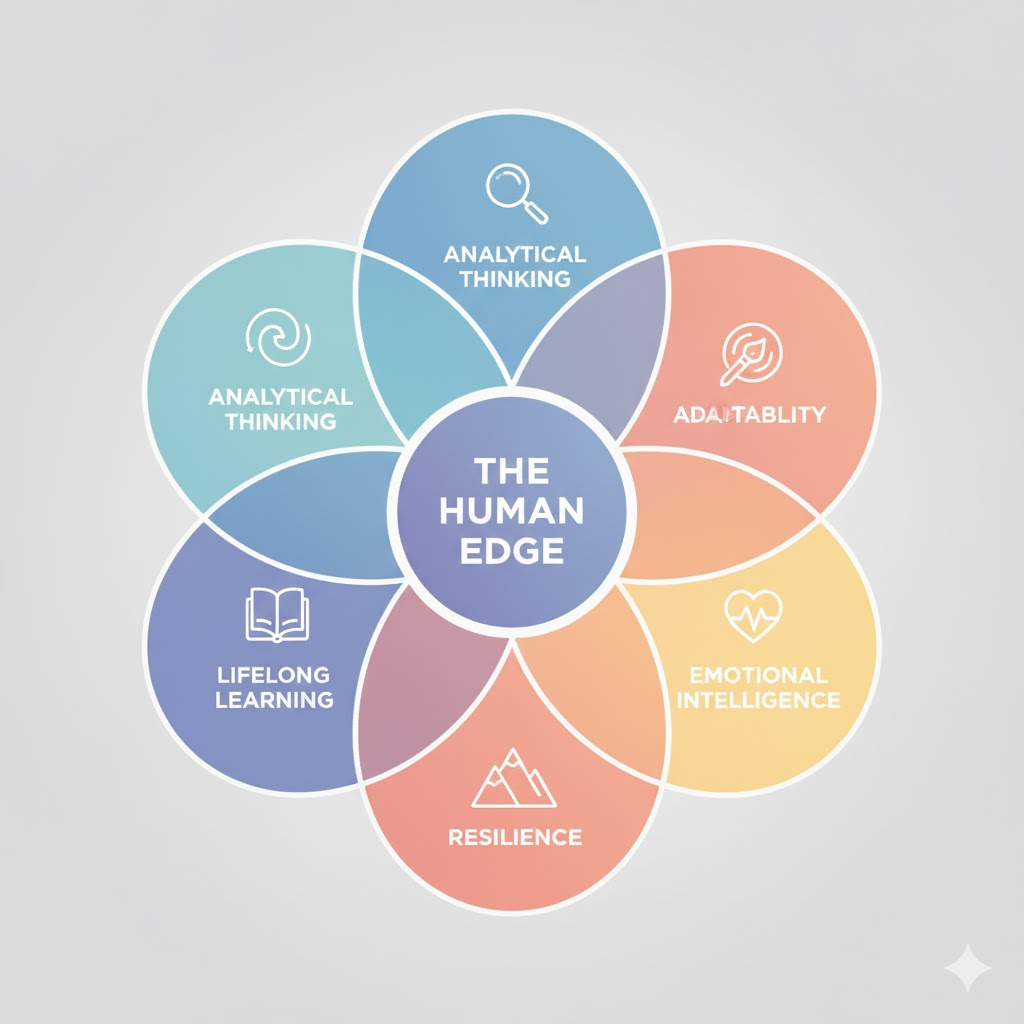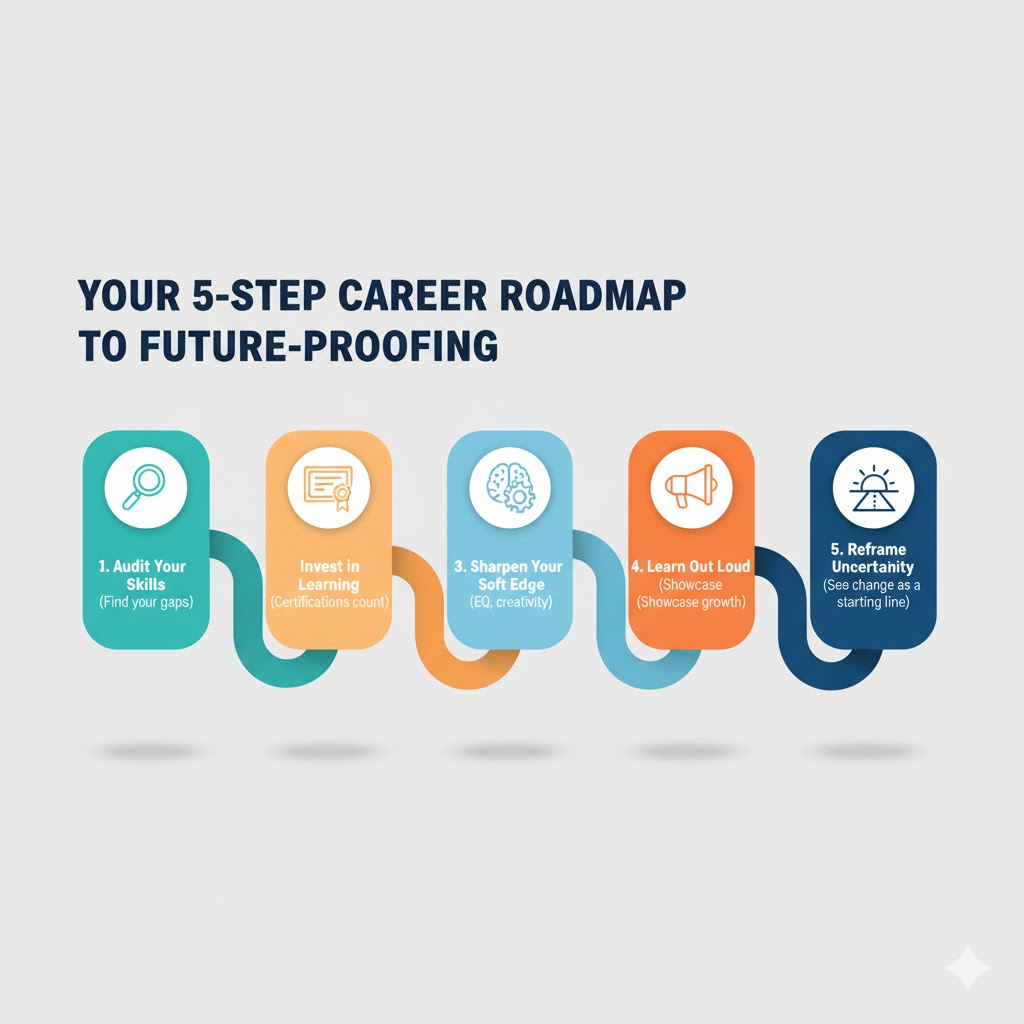

Top Skills Employers Will Look for in 2026 and Beyond
Success in 2026 will come from blending AI and cloud expertise with creativity, emotional intelligence, and resilience that algorithms can’t replicate.

Success in 2026 will come from blending AI and cloud expertise with creativity, emotional intelligence, and resilience that algorithms can’t replicate.
What You’ll Learn in This Blog
Work is moving at warp speed—and it’s easy to feel like you’re sprinting just to stay in place.
You’re not alone.
The job market in 2026 won’t just reward what you know—it’ll reward how quickly you can adapt and apply it with confidence.
Employers are looking for professionals who can navigate AI-driven workplaces while doubling down on the one thing algorithms can’t replicate: your human edge.
Quick Stat: Nearly 49% of talent development professionals report a “skills crisis,” saying leaders don’t believe their teams have the right capabilities to deliver strategy. (LinkedIn, 2025)
According to the World Economic Forum’s Future of Jobs Report, many roles by 2026 will require a blend of digital fluency and human-centric capabilities.
Translation? Employers want people who can speak both languages: tech and empathy.
Whether you’re a mid-senior pro rethinking your next move, a new grad entering an uncertain market, or a career-seeker chasing high-value remote roles—this is your roadmap to the skills employers value most, and how you can stay ahead.
Let’s map this out.
| In-Demand Technical Skills (2026) | Crucial Human-Centric Skills |
|---|---|
| AI Literacy & Data Fluency | Analytical & Critical Thinking |
| Cybersecurity Expertise | Adaptability & Resilience |
| Cloud & Digital Platform Skills | Creativity & Innovation |
| Digital Fluency & Adaptability | Emotional Intelligence (EQ) |
| — | Lifelong Learning & Curiosity |

Think your job is/will be AI-proof? Think again.
Because AI literacy and data fluency will be the new computer literacy, like knowing how to send an email in the 2000s. Non-negotiable.
Employers will expect you to:
And this isn’t just for data scientists.
AI and data fluency are fast becoming table stakes across marketing, HR, finance, healthcare, and creative industries.
Quick Stat: McKinsey reports that companies with a higher “analytic quotient” have revenue growth more than double that of peers—and shareholder returns about 2.5× higher.
“Cybersecurity is just the IT guys’ problem”.
Well, not anymore.
By 2026, it’s every professional’s career insurance policy.
From protecting your own data to guiding teams through threat detection, basic cybersecurity will become one of the highest-paid and most portable additional skills you can carry into the workplace of the future.
Think of cloud skills as your digital driver’s license—without them, you’re not going far.
Platforms like AWS, Azure, and Google Cloud are the backbone of global collaboration.
The real edge? Knowing how to run them across teams without draining budgets or opening security gaps.
In other words, the ability to keep the lights on in a digital-first workplace.
Once upon a time, “digital literacy” meant juggling Word and Excel.
By 2026, it’ll mean weaving AI assistants into your workflow, switching seamlessly across platforms, and learning tools that don’t even exist yet, i.e., Digital Fluency.
Employers won’t prize static expertise.
They’ll prize agility—the ability to learn, unlearn, and relearn faster than tech evolves.

If the tech list feels heavy, here’s the reset: the skills you’ve been building as a teammate, mentor, or leader may matter even more.
Think of it as your skills map: tech on one side, human on the other.
Both are non-negotiable.
5. Analytical & Critical Thinking
AI can crunch numbers. What can’t it do?
Replace human judgment.
Employers will lean on people who can question assumptions, translate insights into strategies, and then actually execute.
Quick Stat: Companies with high analytics maturity don’t just outperform in revenue—they deliver stronger shareholder returns, too. (McKinsey)
Change fatigue is real, but it’s also the new normal.
Professionals who pivot with clarity and composure and bounce back stronger will stand out.
The future belongs to those who don’t just survive disruption—they guide and steady their teams through it with resilience and optimism, turning setbacks into momentum.
When tools become standardized, creativity becomes the differentiator.
Employers will count on professionals who can reimagine systems, solve problems in new ways, think outside the box, and spark innovation where others see dead ends.
Clarity creates confidence—and EQ creates trust.
Leaders who can read the room, manage conflict, and connect authentically will rise fastest in hybrid and remote workplaces.
No one graduates “finished.”
The most future-proof professionals commit to continuous upskilling and curiosity-driven exploration.
Online certifications, micro-learning, and professional communities are now essential insurance policies against job displacement.
Quick Stat: LinkedIn’s 2025 Workplace Learning Report found that only 36% of organizations are true career development “champions.”
That gap is your opportunity.

The future isn’t “hard skills vs. soft skills.” It’s the fusion of both:
Together, these are the skills that will define the workplace of 2026.

Here’s the framework to future-proof your career:

The skills employers will demand in 2026 aren’t about scrambling to keep up—they’re about leading with clarity through uncertain career paths, when the ground keeps shifting.
Whether you’re a seasoned pro, a new grad, or somewhere in between, remember: clarity creates confidence.
Need help?
Keep it real, keep it short, and remember—it’s about perspective, not favors.
Cybersecurity expertise is in demand, often outpacing supply.
Advanced AI/data science and cybersecurity leadership roles.
Technical, teachable abilities like coding, cloud computing, and data analysis


